|
ORGANIZATORI:

(37322) 74 75 96
contact@trigonjazz.com

(37322) 52 27 04
m.postica@gmail.com
Transportator oficial:

Festival sustinut de:




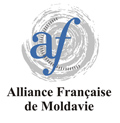







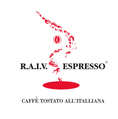
MEDIA PARTENERI:
























|
The VIII edition of International Ethno-Jazz Festival
will be held in Chişinău and Tiraspol
Acreditarea jurnalistilor s-a finisat pe data de 04 septembrie

Anatol Ştefaneţ - viola, vocal
Dorel Burlacu - clape, pian, muzicuţă
Gari Tverdohleb - tobe, percuţie, xilofon
Sandu Arcuş - saxofon, trompetă, flaut, kaval
Pe parcursul timpului trecut de la ultimul festival, în ciuda crizei financiare, grupul a parcurs prin Europa mai mult de 20 000 de km, participând cu succes la festivaluri din Spania, Rusia, Austria, România, Elveţia, Belgia ş.a.
Evaluarea formaţiei a fost înalt apreciată de critici muzicali:
“Ceea ce este special la Trigon, este măiestria cu care reuşesc să creeze o sinteză super-armonioasă între folclorul românesc, cel balcanic şi libertatea dată de jazzul modern”
Virgil Mihaiu
“Trigon este una dintre puţinele grupuri, care întroduce cu bun simţ elemente de muzică românească în jazz. Formula de cvartet condusă de violistul Anatol Ştefaneţ a trecut graniţele Moldovei, a depăşit toate graniţele artistice şi geografice, ceea ce spune totul despre forţa de adresare”
Berti Barbera
Între timp Anatol a scris coloana sonoră la filmele “Lupii şi Zeii” şi “Nunta în Basarabia”
Dorel a compus muzică pentru spectacolul “Cabaret Jacksonville” al trupei teatrului “Luceafărul”
După festival, formaţia Trigon va participa la broadcast live WDR channel,
la a 30-a ediţie al “Contemporary Folk Festival” of EBU (European Broadcasting Union) care în acest an va avea loc în Köln, şi la alte festivaluri din Letonia, Portugalia, Maroc..
Since the last festival, despite the financial crisis, the group traveled in Europe more than 20 000 km, successfully participated at festivals in Spain, Russia, Austria, Romania, Switzerland, Belgium etc.
Music critics appreciated band`s performances as:
“Trigon is one of a few groups which introduced, with a sense of love, elements of Rumanian music in jazz. The formula of quartet led by viola player Anatol Stefanet crossed the borders of Moldova, has exceeded all the artistic and the geographical boundaries, what says everything about the force of their addressing”
Berti Barbera
Meanwhile Anatol has composed the soundtrack for movie “The Wolves and Gods” and “Wedding in Bessarabia”
Dorel has composed music for the spectacle “Cabaret Jacksonville” realized by “Luceafărul” theater.
After the festival, the Trigon will participate in live broadcast channel WDR, at the 30th edition of “Contemporary Folk Festival” of the EBU (European Broadcasting Union),
which this year will take place in Cologne, and at other festivals in Latvia, Portugal, Morocco ..
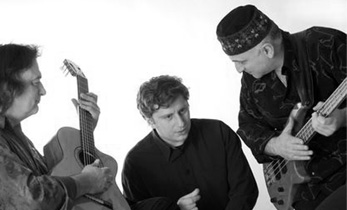
Zaza Miminoshvili – chitară acustică, midi şi electrică, panduri, compoziţie
Zurab J. Gagnidze – chitară electrică şi acustică fără taste, vocal Guruli, compoziţie
Mamuka Gaganidze - vocal, percuţie, doli
“Shin” a fost format în Germania în 1998, unde membrii formaţiei sânt stabiliţi încă din 1994. În patria lor georgiană, aceşti muzicieni sânt deja legende vii şi aparţin elitei artistice a ţării: compozitori şi instrumentişti Zaza Miminoshvili şi Zurab Gagnidze au scris muzică pentru operele lui Robert Sturua pentru teatrul de stat din Tbilisi, şi pentru multe filme realizate în Georgia. Mamuka Gaganidze a înregistrat coloane sonore împreună cu renumitul compozitor Giya Kancheli.
Zaza Miminoshvili a fost nominat “Cel mai bun chitarist” anului 1992 din Georgia. Zurab Gagnidze a cântat cu Randy Brecker, Chaka Khan, Jatinder Thakur, Shankar Lal, Okay Temiz...
În prezent formaţia concertează intens, înregistrează CD-uri şi participă în numeroase proiecte din toată lumea.
Muzica “Shin” uneşte melodiile folclorului georgian cu jazz-ul, tehnica unică vocală din Georgia cu elemente de flamenco, muzica orientală cu cea occidentală contemporană.
“Teatrul muzical” al formaţiei, este umplut cu nuanţe colorate. Muzica oscilează între nesfârşita bucurie a vieţii şi solemnitatea adevarată. “Shin” generează ritmuri şi armonii alterate, condimentate cu sunete exotice de la frontiera de sud-est a Europei până la Orient. Este o interpretare maiestruoasă, demonstrând virtuozitate, temperament exploziv şi un simţ al umorului al muzicienilor, la fel de bine ca şi remarcabila lor interacţiune emoţională.
În georgiană “Shin” înseamnă “drumul spre casă”. Chiar dacă fiecare dintre noi are un drum personal spre “casă” şi o “casă” a sa personală, muzica trupei “Shin” are capacitatea extraordinară de a conduce pe fiecare “acasă”. Muzica te conduce undeva, unde tu ştii că ai mai fost înainte, unde geamurile sânt înceţoşate de la ploaie şi simţi un miros de bucătărie, unde auzi voci şi, chiar dacă tu ai putea să nu înţelegi ce ei spun, tu oricum înţelegi totul. Această muzică te duce acasă, nu contează cât de departe ea se află.
Fiind parte a propriei naţiuni, aceşti artişti sânt onoraţi să susţină refugiaţii de război în Georgia transferând venitul din concertele de caritate organizate în Germania.
Prin intermediul acestor concerte din Berlin, Hamburg, Bremen, Korb, formaţia a ajutat 120 refugiaţi din regiunile Ţhinvali şi Gori (printre ei 43 copii) care trăiau într-un lagăr temporar de refugiaţi.
“The Shin” formed in Germany in 1998, where group members are established since 1994. In their Georgian homeland, these musicians are already living legends and belong to the artistic elite of the country: composers and performers Zaza Miminoshvili and Zurab Gagnidze recorded music for Robert Sturua’s productions for the State Theater in Tbilisi, and for many films produced in Georgia as well. Mamuka Gaganidze recorded soundtracks with the famous composer Giya Kancheli.
In 1992, Zaza Miminoshvili was named “The best guitarist” in Georgia.
Zurab Gagnidze played with Randy Brecker, Chaka Khan, Jatinder Thakur, Shankar Lal, Okay Temiz...
They were the prize winners of numerous jazz festivals.
These days the group tours, records and participates in numerous projects around the world.
“The Shin’s” music brilliantly unites Georgian folk tunes with jazz, the unique vocal technique of Georgia with elements of flamenco, ancient eastern and modern western music.
“The Shin’s” “instrumental theatre” is replete with cultural undertones. The music oscillates between pure joy of life and genuine solemnity. The group generates rhythmic-harmonic extensions, seasoned with exotic sound-spices from Europe’s South-Eastern frontier to the Orient. It is a masterly performance, displaying virtuosity, explosive temperament and sparkling humor of the musicians.
In Georgian Shin means “the road home”. Even though each of us has our own personal road home and our own personal home, the music of “The Shin” has the amazing ability of leading everyone “home”. The music leads you to somewhere you know you've been before, where the windows are fogged over from the rain and it smells of kitchen smells, where you hear voices and, even though you might not understand what they are saying, you understand everything anyway. This music leads you home, no matter how far away it is.
Being a part of own nation, the honor of these artists is to support the war refugees in Georgia by transferring the income from charity concerts organized in Germany. By these concerts in Berlin, Hamburg, Bremen, Korb the group helped 120 refugees from Zhinvali and Gori region who lived in a temporarily refugee camp.

Barabas Tamas - chitară bas
Egerhazi Attila - chitară
Kovacs Ferenc - trompetă, vioară
Kovacs Zoltan - pian, clape
Banai Szilard - tobe
Cinci din cei mai valoroşi muzicanţi de jazz din Ungaria au fondat grupul “Djabe” în 1996. În limba ashanti (africană), “Djabe” înseamnă “Libertate”. Libertatea este conceptul de bază al grupului, care interpretează o muzică unică, combinând elementele de jazz cu muzica populară maghiară şi world music.
În prezent, grupul este cotat ca cel mai popular şi apreciat grup de jazz/world fusion din Ungaria, graţie talentului muzicanţilor Tamas Barabas – compozitorul grupului şi un bas chitarist superdotat; Ferenc Kovacs - “unul din cei mai buni viorişti din lume care, în plus, mai şi cântă la trompetă ca Miles Davis”, iar maniera de interpretare a lui Zoltan Kovacs, plină de expresivitate şi culoare, adaugă un plus de calitate superioară muzicii grupului.
Un alt compozitor al grupului, Attila Egerhazi, îşi exprimă libertatea prin mixul degajat al stilurilor şi instrumentelor. Talentele lui Szilard Banai asigură grupului un background ritmic perfect. Celebri pentru stilul lor caracteristic, sofisticat şi expresiv, ei interpretează compoziţii dinamice, şi în acelaşi timp relaxante.
CDurile lor au câştigat premii în categoria “cel mai bun album de Jazz/World Music din Ungaria” în 2000 şi în 2001; Premiul Internaţional Prince în 2004 şi premiul Surround Music în 2005 la Los Angeles (SUA).
Grupul a participat la numeroase festivaluri de jazz din Europa şi America de Nord: Kaunas Jazz Festival (Lituania); Paectec Jazzfestival (SUA); Burghausen Jazzwoche (Germania); Jazz Goes to Town (Cehia); Spitz (UK); Jazz days (Slovacia); Rochester Jazz festival (SUA); Kaslo Jazz Festival (Canada); Pori Jazz Festival (Finlanda); Stockholm Jazz Festival (Suedia); Udine (Italia), Wiesen Jazz (Austria), Festival Musica do Mundo (Portugalia).
The quintet of the most respected Hungarian jazz musicians formed the group “Djabe” in 1996. “Djabe” means “Freedom” in the African Ashanti language. The freedom is the artistic credo of the group who plays unique music in which elements of jazz are mixed with traditional Hungarian music and world music.
Presently the group is the most acclaimed jazz/world fusion band of Hungary, thanks to the talent of its musicians: Tamas Barabas - the main composer and virtuoso bass guitarist; Ferenc Kovacs - “one of the best violin players in the world who also plays the trumpet like Miles Davis”, while Zoltan Kovacs’s colorful manner of playing increases the standards of Djabe's performance on a large scale.
The other composer of the band is Attila Egerhazi, who expresses freedom primarily by freely mixing styles and instruments. Szilard Banai’s performance gives the best possible rhythmic background to the band.
“Djabe” won numerous Hungarian and International awards and performed at numerous international jazz festivals. Well-known for its varied jazz music style, really sophisticated and colourful, they play both dynamic and relaxing compositions.
Their CDs won the prizes in the category “Best Hungarian Jazz/World Music Album” in 2000 and 2001 years; the international “Prince Award” in 2004 and the “Surround Music Award” in 2005 in Los Angeles (USA).
The group performed at numerous European and North American festivals: Kaunas Jazz Festival (Lithuania); Paectec Jazzfestival (USA); Burghausen Jazzwoche (Germany); Jazz Goes to Town (Czech); Spitz (UK); Jazz days (Slovakia); Rochester Jazz festival (USA); Kaslo Jazz Festival (Canada); Pori Jazz Festival (Finland); Stockholm Jazz Festival (Sweden); Udine (Italy), Wiesen Jazz (Austria), Festival Musica do Mundo (Portugal).
| ALEX CALANCEA TRIO (Moldova) |
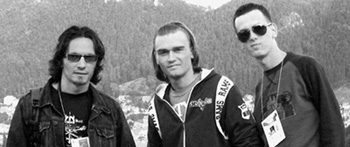
Alex Calancea - chitară bas
Mark Oselschii - pian
Petru Moiseev - tobe
Alex este considerat ca unul dintre cei mai buni basişti din Moldova.
A dedicat mai mult din jumătatea vieţii sale chitării bas. Anume acest instrument l-a făcut să abandoneze, după trei ani de studii, Universitatea Politehnică. Întrând la Conservator s-a găsit pe sine însuşi, şi-a găsit fericirea lui adevărată.
După absolvirea Conservatorulul, Alex şi-a început propriile proiecte de creaţie. Abilităţile sale profesionale de chitarist şi artist evoluau, în acelaşi timp, alături de trupa “Millenium”, “O-Zone”, Dan Bălan rock proiect.
Priorităţile lui în ceea ce priveşte stilurile muzicale variau în procesul său de creştere pas cu pas, aşa după cum de regulă li se întâmplă multor muzicieni talentaţi.
Începând să cânte rock’n’roll când era şcolar; fiind student la Universitate el a preferat punk-ul şi rock-ul, iar fiind student la Conservator s-a orientat spre stiluri de muzică mai profunde - jazz-rock, jazz şi fusion, care cer aptitudinea muzicianului de a gândi.
Actualmente fiind lector la Academia de Muzică, Teatru şi Arte Plastice din Chişinău, la catedra de jazz, având turnee în S.U.A. Europa, Asia, Alex evoluează şi în prezent, e în căutarea limbajului propriu în muzica improvizată.
Este foarte solicitat pentru calităţile sale de studio muzician, participă în diferite proiecte, îşi realizează pasiunile sale jazzistice, cântând în proiecte de jazz: “Jazzmodel”, Geta Burlacu proiect sau cântând cu “Trigon”. Creează muzică pentru proiecte personale ca “Bass tribute”, “Alex Calancea Band” sau cvintet, trio, sextet.
În cadrul Festivalului vom asculta unul dintre cele mai reuşite proiecte ale sale.
Alaturi de Mark Oselschii un talentat pianist educat pe muzica clasica, jazz, funk, care a editat un album de jazz “Rancho Moldova”; şi Petru Moiseev (“Transbalcanica”) un tanar toboşar plin de temperament. La cele spuse sus adaugând efecte digitale, se trece prin melosul balcanic, se pune pe ritmul de funk, fussion şi se obţine - “Alex Calancea Trio”.
Alex is considered as a one of the best bassist of Moldova.
He has devoted more than half of his life to bass - guitar. This guitar was a reason - that being a third-year student, he left the Polytechnic University and entered to study at the Conservatory, that made him very pleased, because, playing this instrument, he had found himself and his true happiness.
Graduating from the Conservatory, he tried to start his own creative projects, at the same time playing and evolving his professional skill of guitarist and artist in “Millenium” band, “oZone”, Dan Balan’s rock project.
Like many talented musicians his priorities in music styles step-by-step vary in the process of his up growth and the maturation of his professional skills.
Starting to play in rock'n'roll bands being at school; when he was studying at University - rock and punk; being a student of Conservatory, he prefers a deeper music styles - jazz-rock, jazz and fusion that require the musician's ability to think.
Actually Alex is in creative evolution, searching of his own language in improvisational music.
Now being lecturer at the Academy of Music, Theatre and Fine Arts in Chisinau, jazz department, having tours through U.S.A., Europe, Asia, he works like studio musician, plays the bass-guitar in different projects, realizes his passion to jazz by participating in jazz projects like: Jazz model, Geta Burlacu project, or playing with “Trigon”; or creating his own projects like “Bass tribute”, “Alex Calancea Band”, his quintet or trio.
At the festival we will have the possibility to listen one of his best projects.
Next to Mark Oselschii, a gifted pianist trained on classic music, jazz, funk, having already a solo jazz album “Rancho Moldova”, and Petru Moiseev (“Transbalcanica”) a young temperamental drummer. To all written above, add some effects, pass through the prism of the Balkan mode, use fusion and funk rhythm and we get - “Alex Calancea Trio”.
KLAUS PAIER TRIO (Austria) |
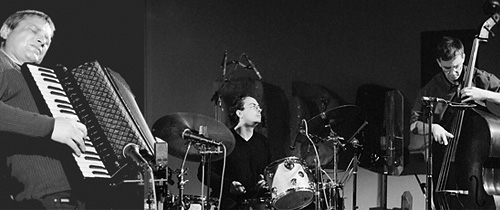
Klaus Paier - acordeon, bandoneon
Stefan Gfrerrer - bas
Roman Werni - tobe, percuţie
Când este întrebat ce gen de muzică l-a influenţat cel mai mult, Klaus Paier răspunde: “Jazzul şi tangoul mi-au oferit libertatea să-mi dezvolt propriul limbaj în muzică.” Paier a fost inspirat în mod deosebit de instrumentalişti ca Keith Jarrett, Bill Evans, Charles Mingus sau Thelonious Monk. Felul lor de a vedea jazzul, cu toată diversitatea posibilităţilor muzicale şi libertatea pe care le oferă, a fost de o importanţă inestimabilă pentru el. Continuând să-şi caute o formă perfect individuală a exprimării la acordeon, Klaus Paier l-a descoperit, mai târziu, pe Dino Saluzzi şi, prin acesta, Tango Nuevo al lui Astor Piazzolla şi bandoneonul, un instrument pe care-l foloseşte din ce în ce mai des. Paier percepe tangoul ca un element de stil, folosindu-l ca o proiecţie de suprafaţă pentru inventivitatea sa muzicală. Dar şi sound-ul european, evoluat, al acordeonului figurează, în egală măsură, în muzica sa: “Le voyage a Paris”, “Musette Waltz” (Franţa), Tarantella (Italia), Dans bulgar (Balcani), sunt doar câteva exemple ale diversităţii componistice ale lui Paier în acest domeniu. Muzicianul procesează elementele experimentale şi moderne în duet cu saxofonistul Gerald Preinfalk. Indiferent de forma pe care o foloseşte Paier pentru a se exprima în muzică, în plus la diversitatea posibilităţilor stilistice, maniera sa interpretativă este caracterizată de fermitatea şi intensitatea prestaţiei artistice. Eliberându-se de orice constrângeri instrumentale, el eliberează astfel acordeonul de povara lui istorică şi pătrunde în sfere muzicale absolut noi. Paier tinde să exprime în muzică o polaritate încărcată pozitiv: atracţie şi respingere, greutate şi uşurinţă, zgomotul şi liniştea, deschiderea şi interiorizarea, disciplina strictă şi explozia fulminantă. Realizează această performanţă incredibilă iar şi iar, într-o manieră inconfundabilă, cucerind publicul oriunde s-ar duce: Israel, Franţa, Italia, Suedia, Polonia şi multe alte ţări din Europa. Evoluând solo, în duet cu partenerul său Gerald Preinfalk, în format trio cu Stefan Gfrerrer şi Roman Werni, sau în cadrul “Radio string quartet” – Klaus Paier este unul din cei mari acordeonişti din Europa cu renume mondial.
Stefan Gfrerrer şi Roman Werni sunt de mai mulţi ani “tovarăşii de drum în muzică” ai lui Klaus Paier. Combinaţia lor - acordeon, bandoneon/bas/tobe - este una foarte rar întâlnită, cu atât mai valoroase fiind succesul şi popularitatea câştigate de ei în toată lumea. La Paris, Stockholm, Varşovia sau în Israel, publicul rămâne extaziat în sălile de concert şi în cluburile de jazz; concertele se dau cu casa închisă, iar criticii nu mai au cuvinte de apreciere pentru muzicalitatea extraordinară a grupului.
Pentru CD-uri “Movimiento” şi “Live” (ambele PAO), de Klaus Paier Trio a fost nominalizat pentru premiul austriac de muzică “Amadeus Award”.
Jorg Konrad
(jurnalist freelance, Germania)
When asked which form of music has influenced him most strongly, Klaus Paier answers: “Jazz and tango gave me the freedom to develop my own language of music”. Paier has been particularly inspired by such instrumentalists as Keith Jarrett, Bill Evans, Charles Mingus or Thelonious Monk. For him, their conception of jazz, with its wide diversity of musical possibilities and freedoms, was of inestimable importance. Continuing his search for a very individual form of expression on the accordion, Klaus Paier later discovered Dino Saluzzi, then – through him – Astor Piazzolla’s Tango Nuevo and, from there, the bandoneon, an instrument he is now using more and more often. Paier sees tango in itself more as an element of style. He uses it as a kind of projection surface for his musical inventiveness. But the historically evolved European sounds of the accordion have also featured in his playing and his compositions: Le voyage a Paris, Musette Waltz (France), Tarantella (Italy), Bulgarian Dance (Balkans), are just a few examples of Paier’s integrative diversity of composition in this field. The accordionist processes experimental and contemporary elements above all in a duo with saxophonist Gerald Preinfalk. No matter in what form Paier expresses himself in music, in addition to a diversity of stylistic possibilities, his playing is characterized by the resoluteness and intensity with which he presents his projects. Emphatically he frees himself of all instrumental expectations, thereby liberating, as it were, the accordion from its historical burden and penetrating completely new spheres of music. He himself aims to express a positively charged polarity in music: attraction and rejection, weight and lightness, loudness and quietness, openness and self-containment, strict discipline and passionate explosiveness. He accomplishes this feat again and again in an inimitable manner, enthralling his audience in concert tours in Israel, France, Italy, Sweden, Poland and many other European countries. Be it as a soloist, with his duo partner Gerald Preinfalk, in the trio with Stefan Gfrerrer and Roman Werni, or the “Radio string quartet” – Klaus Paier ranks among the great European accordionists with a world-wide reputation.
Stefan Gfrerrer and Roman Werni have been Klaus Paier's fellow-travelers in music for many years. Their accordion, bandoneon/bass/drums line-up is a rather rare combination of instruments. All the more credit to the trio's success and popularity around the world. Be it in Paris, Stockholm, Warsaw or Israel, audiences are enthralled in concert halls and jazz clubs that are almost always sold out and critics full of praise for the ensemble's outstanding musicality.
Guided by the idea of a piano trio, the three instrumentalists formed a cohesive group that stands out due to its great unity. Klaus Paier, Stefan Gfrerrer and Roman Werni flood their listeners with musical ideas, captivating them in a timeless labyrinth of pulsating moods. Klaus Paier's compositions feature all the influences and elements of styles which the accordionist has dealt with in the course of his career so far: the complex spontaneity of jazz, the vivacious passion of Tango Nuevo, the disciplined aspect of European classical music, the complex tradition of European folk music. With completely natural dedication and great relish, he explores the various facets of this music. Stefan Gfrerrer and Roman Werni are incredibly sure-footed companions and renowned soloists rolled into one. Their rhythmically dense, immediate communication transports the music, now filigree and fragmentary, now lavish and ecstatic, into a completely other timely atmosphere. For the CDs “Movimiento” and “Live” (both PAO), the Klaus Paier Trio was nominated for the Austrian music prize, the “Amadeus Award”.
Jorg Konrad (freelance music journalist, Germany)
GRZEGOGZ KARNAS QUINTET (Polonia)
|

Grzegorz Karnas - vocal
Michal Tokaj - pian
Adam Oles - violoncel
Michal Jaros - contrabas
Sebastian Frankiewicz - tobe
Deşi formatul instrumental al cvintetului (tobe, bas acustic, violoncel, pian şi voce) ne-ar putea face să credem că profesează o aventură stilistică a mainstream-ului, acest proiect este departe de paradigma clasică.
Grupul atrage prin ostinatos de trans şi abstracţia modală a compoziţiilor, dezvoltate pe bază de teme melodice simple şi frumoase.
Karnas creează “compoziţii excelente - foarte melodioase, ce merită pe deplin atenţia şi timpul ascultătorului. Aranjamentele sunt caracterizate printr-un mix meticulos de sunete şi un simţ al timbrului; deşi uneori este densă şi stratificată, muzica lor nu este supraîncărcată, fiecare element sonic este semnificativ, lucid şi se îmbină armonios cu restul instrumentelor. Muzica lor generează continuu o gamă largă de sunete succesive cu improvizaţii excelent cântate, atmosfera variind de la balade la trans - excursii. ” (Robert Buczek)
Grzegorz Karnas - compozitor, producător, directorul artistic al Jazz Concursului Internaţional “Voicingers”. Grzegorz şi-a început cariera profesională câştigând în 1998 Premiul I -“Jazz Vocalist” la Concursul Internaţional (Zamosc, Polonia).
Alte victorii importante ale lui: Premiul I la “Jazz Vocalist Concurs” din Bruxelles în 2006; Premiul I la “Crest Jazz Vocal Concurs” din Franţa în 2007.
Michal Tokaj este absolventul Academiei de Muzică din Katowice, jazz facultate. A debutat pe scena jazzului în 1993 ca membru al cunoscutului Cvartet Kazimierz Jonkisz. Din 2001 este profesor al Asociaţiei Şcolilor de Muzică “Fryderyk Chopin” din Varşovia. Nominalizat la Premiul “Fryderyk” (echivalentul polonez al Premiului Grammy) la categoria “Cel mai bun jazzman-2002”.
Adam Oles consideră că este un “violoncelist influenţat de diversitate”, presa însă îl apreciază ca un “muzicant de geniu”
Cântând la violoncel, devine un poet şi pictor al sunetului, dedicat improvizaţiei şi dialogului prin intermediul muzicii.
Michal Jaros este absolvent al Asociaţiei Şcolilor de Muzică „Fryderyk Chopin” din Varşovia, şi al cursurilor postuniversitare la Academia de Muzică “Karol Szymanowski” din Katowice. Este laureat al Festivalurilor “Jazz pe Odra” (Wroclaw, 1996), “Jazz Juniors” (Cracovia, 2002).
Sebastian Frankiewicz este laureat al Festivalurilor “Jazz pe Odra” (Wroclaw, 1996), “Jazz Juniors” (Cracovia, 2002), “Bielska Zadymka Jazzowa” din Bielsko-Biala. A câştigat premiile “Jazz Juniors” şi “Individual Expression” la concursul “Jazz Standards” din Siedlce; premiul “Golden Crocus” la “Jelenia Gora jazz festival”.
Grzegorz Karnas's quintet, though its instrumental line-up could portend somewhat of a mainstream adventure, is far removed from the classical paradigm. The group draws on the trance-like nature of ostinatos and the abstraction of modal playing, developed on the basis of simple and catchy melodic themes.
Karnas creates “excellent compositions - very melodic, making the listener want to give the music their attention and time. The arrangements are characterized by meticulous blending of sounds and a feel for timbre; though the instrumentation is at times dense and multi-layered, the music isn't overloaded, each sonic element is meaningful and resounds lucidly with the rest. Thanks to this, the music continually blossoms with a wide array of sounds, the successive, stirringly played improvisations flow forth, the moods range from ballads to trans-like excursions.” (Robert Buczek)
Composer producer, and the artistic director of the International Jazz Competition for Singing Musicians “Voicingers” - Grzegorz Karnas started his professional career winning in 1998 his first prize at the International Jazz Vocalists' Meeting in Zamosc (Poland). His next important victories were in 2006 at Brussels Jazz Singers Competition, where he won the First prize and in 2007 at the Crest Jazz Vocal Competition in France.
Michal Tokaj is the winner of numerous awards, including the I Prize at the International Jazz Improvisation Contest (Katowice). His own CD “Bird Alone” (released in Japan), won a “Fryderyk Award” as a “Best Jazz Album” and brought him a nomination for “Jazz Musician of the Year”.
Adam Oles is a “cellist influenced by the miscellaneous”, as Adam names himself, and “a brilliant musician” as the press praises him.
On the cello he becomes a poet and painter in sound, lover of improvisation and dialogue through music.
Michal Jaros is a graduate of Warsaw's Fryderyk Chopin Music School and of the “Karol Szymanowski” Katowice Academy of Music. He is winner of jazz competition “Oder Jazz Festival” (Wroclaw, 1996), “Jazz Juniors” (Cracow, 2002).
Sebastian Frankiewicz won awards at the Juniors Competition, at the Oder Jazz Festival, was the I Prize winner at “Jazz Standards Competition” (Siedlce), got the “Golden Crocus” award at the “Jelenia Gora Jazz Festival” and the I Prize at “Bielska Zadymka Jazzowa”
| LOUIS SCLAVIS TRIO (Franta) |
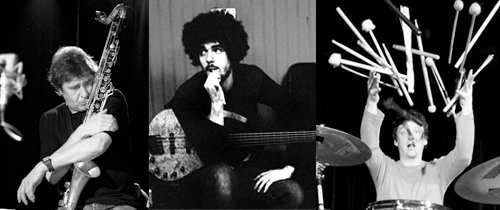
Louis Sclavis - clarinet
Olivier Lete - electric bas
Francois Merville - tobe
“Louis Sclavis s-a impus, de cincisprezece ani, ca unul din cei mai creativi muzicanţi pe scena jazzului european.”
Imprevizibilul Louis Sclavis, înarmat cu clarinetul său, a cutreierat mai multe “teritorii” muzicale, e un adept convins al reînnoirii permanente şi a colaborat cu numeroşi colegi-muzicanţi, fiindcă pentru el, dialogul muzical este acea dimensiune de bază care contribuie la dezvoltarea organică a creaţiilor sale.
Louis Sclavis nu pierde niciodată integritatea concepţiei sale muzicale: dovadă sunt compoziţiile în care multitudinea de influenţe se combină, generând creaţii de o rară frumuseţe şi originalitate”.
A fost un caz fericit pentru jazzul contemporan, că în 1962 la Lyon, oraşul de origine al lui Sclavis, a fost disponibil doar profesorul de clarinet. Graţie acestui fapt Sclavis a decis să încerce a studia clarinetul.
Când a înţeles că vrea să cânte muzica sa proprie, el a descoperit pentru sine un bass clarinet, care a devenit vocea lui de identitate pentru toată viaţa lui creativă.
Artistismul deosebit al acestui compozitor şi muzicant, inovaţiile sale în muzică, virtuozitatea uimitoare de interpretare la clarinet, catalogul vast al înregistrărilor, nenumăratele proiecte realizate au contribuit la aprecierea lui Sclavis drept “un gigant al scenei europene a jazzului”.
E foarte complicat să faci o scurtă notă biografică a unei astfel de personalităţi faimoase în lumea jazzului mondial.
Sclavis este perfect capabil să cânte solo, în duet, în trio, în cvintete sau în septete create de el.
În plus, la compoziţiile create pentru multiplele sale proiecte, Sclavis a scris muzică pentru spectacolele coregrafei Mathilde Monnier: “A la renverse”, “Chinoiserie”, “Face Nord”, “Ainsi de suite”; muzica pentru filmul “Ca commence aujourd'hui” de Bertrand Tavernier, pentru showul “Fin et Debut” al coregrafului Francois Verret, pentru spectacolul lui Jean Louis Martinelli “Le deuil sied à Electre”, pentru filmul mut “Dans la nuit” de Charles Vanel.
O listă scurtă a premiilor obţinute de Louis Sclavis:
1988 - The Django Reinhardt Prize, pentru “Best Jazz Musician” în Franţa.
1989 - Sclavis Quartet obţine Premiul I pentru Grupul european al anului la Festivalul Bienal din Barcelona.
1990 - Louis Sclavis obţine British Jazz Award 1990/91 pentru “Cel mai bun artist internaţional al anului”.
1996 – Premiul Naţional pentru Muzică al Ministerului francez al Culturii.
2003 – Premiul Mare al Publicului la Festivalul “Strade del Cinema” în Aoste (Italia) pentru “Dans la nuit”.
Discografie:
2007 - La moitie du monde (JMS)
2007 - L’imparfait des langues (ECM)
2005 - African flashback (Label Bleu)
2003 - Napoli's Walls (ECM)
2003 - Un instant de bonheur (Victo)
2003 - A l'improviste (Signature)
2002 - Dans la nuit (ECM)
2001 - L'affrontement des pretendants (ECM)
2001 - I dream of you jumping (Victo)
1999 - Suite africaine (Label Bleu)
1998 - Le phare (Enja)
1997 - Danses et autres scenes (Label Bleu)
1996 - Les violences de Rameau (ECM)
1996 - Ceux qui veillent la nuit (Label Bleu)
1995 - Carnets de route (Label Bleu)
1994 - Et on ne se parle pas du temps (Fmp)
1994 - Acoustic Quartet (ECM)
1992 - Ellington on the air (Ida Records)
1992 - Rouge (ECM)
1991 - Trio de clarinettes (Fmp)
1989 - Chamber music (Ida)
1987 - Transition (West Wind)
1987 - Chine (Ida Records)
1985 - Clarinettes (Ida Records)
1981 - Ad augusta per angustia (Nato Label)
Din constelaţia stelelor jazzului, alături de care a cântat Louis Sclavis, fac parte Didier Levallet, Michel Portal, Henri Texier, Evan Parker, Aldo Romano, Peter Brotzmann, Dominique Pifarely, Michel Godard, Trilok Gurtu, Loi Coxhill, Connie Bauer, Valentin Clastrier, Jacques di Donato, Philippe Deschepper.
A fost unul dintre primii care a îmbinat jazzul cu muzica franceză folk, în special în colaborare cu Valentin Clastrier.
Olivier Lete
În 2002, la vârsta de 23 de ani, Olivier Lete părăseşte oraşul Nimes, unde era un membru activ al scenei muzicale locale, pentru a deveni, la invitaţia dirijorului Claude Barthelemy, membru al “Orchestre National de Jazz”.
A colaborat cu orchestra până în 2005, perioadă în care a cunoscut muzicanţi din cei mai celebri pe scenele festivalurilor de jazz din toate colţurile lumii.
Autodidact în basul electric şi cu studii în basul clasic, Lete cântă în prezent cu diverse grupuri şi participă în proiecte de muzică improvizată, cum ar fi:
“Le Collectif Slang” (Maxime Delpierre, David Aknin, Laurent Geniez)
“The Fire of Lean Nun in Winter” (Eric Groleau, Philippe Lemoine),
“500mg” (unde este compozitor cu Didier Ithursarry, Sebastien Lete, Pascal şi Benech Philippe Lemoine)
“La Fanfare Electrique” (Patrice Soletti, Norbert Lucarain)
“D999” (Jean-Francois Olive, David Collet, Christian Lete)
În 2007 a colaborat cu Emmanuelle Labory şi Hall de la Chanson la crearea, cu Claude Barthelemy, a benzii sonore pentru “L’inouie Music Hall”– un spectacol muzical interpretat în limbajul semnelor.
Colaborează regulat cu Dominique Pifarely, Olivier Benoit, Thomas Depourquery, Vincent Courtois, Samuel Silva şi Sylvain Kassap.
Din 2005, Olivier Lete predă basul electric la Conservatorul din Pantin.
Francois Merville este un baterist care face minuni… talentul său, precizia interpretării au făcut din el un muzician foarte căutat şi solicitat.
A început să cânte la pian la vârsta de şase ani, dar ştia de pe atunci că vrea să cânte la tobe. Studii clasice, mai multe menţiuni la Conservator, o scurtă colaborare cu Inter contemporary section al lui Pierre Boulez… dar este atras de jazz.
În scenă, simţul său al sunetului, al timbrului, al duratei, atenţia la melodie sunt transmise prin limbajul corporal.
Stă drept în picioare; corpul se deschide muzicii.
Mişcările lui sunt asemenea unei ape curgătoare. Ca şi muzica pe care o cântă.
“Louis Sclavis asserted himself since almost fifteen years as one of the most creative musicians of the jazz European scene.”
The unpredictable Louis Sclavis who, from Rameau to Duke Ellington, passing by Napoli's walls, carrying his clarinet, roves on many musical territories and constantly renewed, crossing many musicians' path because for him, the meeting is an essential dimension to the organic blooming of his music.
Unbounded musician, Louis Sclavis never loses the integrity of his musical conception, according to his compositions which melt his hypothetical influences in a beautiful and daring general effect.” (inclinations production)
It was a happy case for the contemporary jazz that in 1962 in Lyon, the home town of Louis Sclavis, a clarinet teacher was available only. Thanks to this fact Sclavis decided just to try to study clarinet.
When he understood that he wants to play his own music, he discovered the bass clarinet which becomes the voice of his identity for his whole creative life.
The artistic way of this composer and musician, his innovative route in music, his astonishing virtuosity of clarinet playing, a large catalogue of recordings, numerous projects created – all this had made of Louis Sclavis “a giant on the busy European scene”.
Nowadays, to write a short biography of such a notable personality of world’s jazz is rather difficult.
In Sclavis’s creative biography the largest number of concerts have been played around the world solo or in duo or with one of his trios, or quintets, or septets created by him
Besides the music compositions created for his numerous projects, Sclavis composed music
for performances choreographer Mathilde Monnier: “A la renverse”, “Chinoiserie”, “Face Nord”, “Ainsi de suite”; music for the movie “Ca commence aujourd'hui” by Bertrand Tavernier, for the show “Fin et Debut" by the choreographer Francois Verret, for the show of Jean Louis Martinelli “Le deuil sied a Electre”, for the silent movie “Dans la nuit” by Charles Vanel.
A list of Sclavis awards:
In 1988 - The Django Reinhardt Prize, as the “Best Jazz Musician” in France.
In 1989 - Sclavis Quartet won First Prize as European Band of the Year at the Barcelona Biennial festival.
In 1990 - Louis Sclavis received the British Jazz Award 1990/91, as the “Best International Artist of the Year”.
In 1996 – the National Music Award of the French Ministry of Culture.
In 2003 - the First Audience Prize in the Festival “Strade del Cinema” in Aoste (Italia) for “Dans la nuit”.
Discography:
2007 - La moitie du monde (JMS)
2007 - L’imparfait des langues (ECM)
2005 - African flashback (Label Bleu)
2003 - Napoli's Walls (ECM)
2003 - Un instant de bonheur (Victo)
2003 - A l'improviste (Signature)
2002 - Dans la nuit (ECM)
2001 - L'affrontement des pretendants (ECM)
2001 - I dream of you jumping (Victo)
1999 - Suite africaine (Label Bleu)
1998 - Le phare (Enja)
1997 - Danses et autres scenes (Label Bleu)
1996 - Les violences de Rameau (ECM)
1996 - Ceux qui veillent la nuit (Label Bleu)
1995 - Carnets de route (Label Bleu)
1994 - Et on ne se parle pas du temps (Fmp)
1994 - Acoustic Quartet (ECM)
1992 - Ellington on the air (Ida Records)
1992 - Rouge (ECM)
1991 - Trio de clarinettes (Fmp)
1989 - Chamber music (Ida)
1987 - Transition (West Wind)
1987 - Chine (Ida Records)
1985 - Clarinettes (Ida Records)
1981 - Ad augusta per angustia (Nato Label)
In the constellation of stars with whom Louis Sclavis played are such musicians as Didier Levallet, Michel Portal, Henri Texier, Evan Parker, Aldo Romano, Peter Brötzmann, Dominique Pifarely, Michel Godard, Trilok Gurtu, Loi Coxhill, Connie Bauer, Valentin Clastrier, Jacques di Donato, Philippe Deschepper…
He was one of the first to combine jazz with French folk music, working most prominently with Valentin Clastrier, hurdy-gurdy player.
Olivier Lete
In 2002, at the age of 23, Olivier Lete leaves the Nimes city, where he was one of the active members of a local music scene, to become member of the “Orchestre National de Jazz”, invited by Claude Barthelemy (Director of the orchestra).
The adventure continued until 2005, favoring, in parallel, meetings with artists from all walks of life, occurring on festivals stages around the world.
Self-taught electric bass and classically educated bassist, Lete now participates in diverse groups and improvised music projects such as:
“Le Collectif Slang” (Maxime Delpierre, David Aknin, Laurent Geniez)
“The Fire of Lean Nun in Winter” (Eric Groleau, Philippe Lemoine),
“500mg” (where he is a composer with Didier Ithursarry, Sebastien Lete, Pascal and Benech Philippe Lemoine)
“La Fanfare Electrique” (Patrice Soletti, Norbert Lucarain)
“D999” (Jean-Francois Olive, David Collet, Christian Lete)
In 2007 he collaborated with Emmanuelle Labory and Hall de la Chanson creating, with Claude Barthelemy, the soundtrack for “L’inouie Music Hall” - a musical spectacle performed in sign language
He regularly plays with Dominique Pifarely, Olivier Benoit, Thomas Depourquery, Vincent Courtois, Samuel Silva and Sylvain Kassap.
Since 2005, Olivier Lete teaches an electric bass at the Conservatory of Pantin.
Francois Merville is a drummer who makes wonders.... his instrumentalist gifts, his attention make him a wanted and highly requested musician.
His musical background is strong. He starts piano at the age of six, but he knows that he wants to play drums. Classical studies, several conservatory awards, he plays for a while in the Inter contemporary section of Pierre Boulez but he is attracted by jazz music.
On stage, his sense of sound, timbre, his notion of duration, his attention to melody is translated by his physical position, his body language. He stands up straight; the body opens to the music. His gesture is flowing. Like his music.
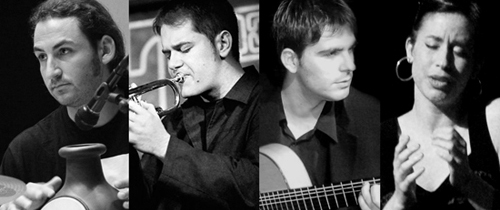
“Primul lucru care merită menţionat este libertatea lor de expresie. Muzica lor ar putea fi numită una a extremelor, oscilînd de la swing la tango, buleria, bossanova, alegria etc. ”
Grupul a fost fondat în 2002. De atunci, au evoluat pe diferite scene din Europa, Africa şi America şi au participat la numeroase festivaluri de prestigiu, reprezentând Spania în Mexic la Festivalul Eurojazz 2008, Eurofolk 2008 (Moscova), “Alliance Francaise” (Ghana), Arts International Festival la Lerdo (Mexic), Musicalia 2007 (La Habana, Cuba). Au evoluat în cele mai faimoase săli de concerte din Spania, cum ar fi “Circulo de Bellas Artes” (Madrid), Etnohelmantica Festival (Salamanca), Segovia International Festival şi altele.
Compozitorul şi chitaristul Joan Herrero a absolvit “Aula de Musica Moderna i Jazz” în Barcelona şi “Conservatori Superior de Música del Liceu” unde a studiat chitara flamenco cu profesorul Manuel Granados.
Artist cu cele mai diverse preferinţe muzicale - flamenco, rock, jazz şi muzica world arabă - Herrero cântă în grupul “Duende y Aire”, interpretează tangouri argentiniene şi flamenco cu grupul “Meditertango”, cântă la chitară electrică şi la oud-ul arab în “Pedro Navarro Sextet”, la banjo în “Jove Dixieland Band”, interpretează pop-rock în grupurile “Maria” şi “Big Band Uji”.
Predă flamenco şi chitara electrică la “U.I.M. la Esmeralda d`Almassora” şi la “Centre Educatiu del Lledo”.
Jordi Albert a absolvit Conservatorul din Castellon cu rezultate excelente şi Facultatea de jazz cu menţiune specială; a urmat Cursurile de Pedagogie şi Tehnică Alexander în muzica clasică, muzica modernă şi jazz la “Instituto Superior de Arte” din Cuba şi la Colegiul din Mexico. 4477
În plus la activitatea sa în “Duende y Aire”, este liderul grupului “Jove Dixieland Band”.
Este, de asemenea, coordonatorul artistic al Programului de Instruire Muzicală la Universitatea din Castellon “Jaume I”; profesor de trompetă şi improvizaţie la Conservatorul Naţional din Mexico City; profesor de trompetă şi Tehnică Alexander la Instituto Superior de Arte din Cuba şi director al Programului Naţional de instruire muzicală în Guatemala.
Lara Bello a început să ia lecţii de canto, dans flamenco, balet clasic şi contemporan la o vârstă foarte fragedă. La 8 ani, evolua deja ca actriţă, cântăreaţă şi dansatoare în teatre ca Teatro Elvira La Seduccion şi Taller de Danza Azuara. A studiat vioara şi vocalul la Conservatorul din Granada; vocalul la Royal Music School din Londra; tehnica vocalului flamenco cu David Sorroche şi Sensi Martos la “Escuela Superior de Estudios Flamencos” din Granada.
La Taller de Musics a studiat vocalul şi jazzul modern cu Carme Cuesta şi Ana Maria Finger.
A studiat dansul modern în Granada, la Barcelona şi la Londra.
Pasionată de limbajul corporal, a studiat baletul clasic, dansul spaniol, african şi oriental; a luat parte la diverse spectacole de muzică şi teatru, cele mai cunoscute fiind “Blood Wedding” - Agadir (1999, Premiul Special al Publicului), “Selena” de Jose Ignacio Moreno-Davila şi commedia dell'arte - “Hoţul Lunii” etc.
A participat ca vocalistă în diverse proiecte muzicale, inclusiv la înregistrarea benzilor sonore pentru filme.
În dans şi coregrafie, a colaborat cu artişti ca Omar Faruk Tekbilek, Alabina şi în formaţii de dans ca East Anlage, Flower Henna, Al-Ghazalat, Chekka Orchestra din Tetouan.
David Gadea a absolvit Conservatorul District Marítim de Gandia Grau şi a continuat să studieze muzica la Valencia, unde a fost iniţiat în percuţia latino de către cunoscutul muzician şi profesor cubanez Yoel Paez. A colaborat cu dansatorul Jose Luis Ponce şi chitaristul Benjamin “Bean”, cu grupul “Percusi o no”, grupul fusion “Andergrau”. A cântat cu astfel de vocalişti şi grupuri ca Oscar Briz, Saudade, Liamba, Jarana Tremolor, Impact-of-La banda, Cristina Blasco, Rogerio Nana Manu Tenorio. A înregistrat, ca muzician de studiou, discurile grupurilor “Asynchrony” (Oscar Briz), “Beyond Oneself” (Tarancon Manolo), “Wisdom” (Duende y Aire).
“The first thing to be mentioned is their freedom of expression. One could call their music extremist since the swing goes to tangos rhythms and bulerias, bossanova, alegrias etc. ”
The group was founded in 2002. Since that time the group has presented their program on different European, African and American stages, performing in a number of prestigious festivals representing Spain in Mexico at Eurojazz festival 2008, Eurofolk 2008 (Moscow), the “Alliance Francaise” (Ghana), the Arts International Festival in Lerdo (Mexico), Musicalia 2007 (La Habana, Cuba) and on numerous Spanish stages such as “Circulo de Bellas Artes" (Madrid), “Etnohelmantica Festival (Salamanca), Segovia International Festival and others.
Composer and guitarist Joan Herrero graduated “Aula de Musica Moderna i Jazz” in Barcelona and the “Conservatori Superior de Musica del Liceu” where he learnt flamenco guitar with Professor Manuel Granados.
There are different events which are important for his versatile musical life. His preferences in music - flamenco, rock, jazz and Arabian world music - led him to become a member of “Duende y Aire” group, to play Argentinean tangos and flamenco in “Meditertango” group, to play electro guitar and Arabian oud in “Pedro Navarro Sextet”, the banjo in the “Jove Dixieland Band”, to sing in pop-rock groups “Maria” and “Big Band Uji”.
Besides his concert activity, he is a teacher of flamenco and electric guitar in the “U.I.M. la Esmeralda d`Almassora” and in the “Centre Educatiu del Lledo”
Jordi Albert graduated the Conservatory of Castellon with excellent results and the Faculty of jazz with a special prize; studied at the Training Courses of Pedagogy and the Alexander Technique in the field of classical music, contemporary music and jazz, at the “Instituto Superior de Arte” in Cuba and at the College of Mexico.
Besides playing in “Duende y Aire”, he is a leader of the “Jove Dixieland Band”.
In educational field, he is the artistic coordinator of the Music Education Program at the University of Castellon “Jaume I”; professor of trumpet and improvisation at the National Conservatory in the Mexico City; professor of trumpet and Alexander Technique at the Instituto Superior de Arte de Cuba; director of the National musical education program in Guatemala.
Lara Bello took lessons of canto, flamenco dance, classic and contemporary ballet from a very young age. At the age of 8, she already performs as an actress, singer and dancer in such theaters as “Teatro Elvira La Seduccion and “Taller de Danza Azuara”. She studied violin and vocal at the Conservatory of Granada; vocal at The Royal Music School of London; flamenco vocal technique with David Sorroche and Sensi Martos at the “Escuela Superior de Estudios Flamencos” in Granada.
She traveled to Barcelona and joined the Taller de Musics to study voice and modern jazz with Carme Cuesta and Ana Maria Finger.
At the same time was involved in several workshops for vocal technique, led by Gillyanne Kayes “Vocal Process” and “Voice Craft” led by Jo Estill, as well as in “Voice of modern music and jazz”.
She studied contemporary dance in Granada, in Barcelona and in London.
Passionated by the language of the body, she begins to study classic ballet, Spanish, African and oriental dance, working in different musical and theater formations, the most notable being “Blood Wedding” - Agadir (1999, Special Public Award), “Selena” by Jose Ignacio Moreno-Davila and comedia dell'arte - “The Thief of the Moon”, etc).
As a singer she has worked in various music productions, including the highlight of Shai Bachar for film soundtracks productions.
As a dancer and choreographer, she collaborated with such artists as Omar Faruk Tekbilek, Alabina and in various dance formations: East Anlage, Flower Henna, Al-Ghazalat, Chekka Orchestra of Tetouan.
David Gadea graduated the Conservatory District Maritim de Gandia Grau and continued his musical education in Valencia, where he started his studies in Latin percussion with the well known Cuban musician and Professor Yoel Paez. He collaborated with the dancer Jose Luis Ponce and the guitarist Benjamin “Bean”, “Percusi o no” group, the fusion group called “Andergrau”. He played with solo singers or groups, such as Oscar Briz, Saudade, Liamba, Jarana Tremolor, Impact-of-La banda, Cristina Blasco, Rogerio Nana Manu Tenorio. As a studio musician he took part in disks recordings with the groups “Asynchrony” Oscar Briz, “Beyond Oneself” Tarancon Manolo, “Wisdom” of Duende y Aire…
|
NADISHANA/METZ/SHEHAN TRIO(Rusia/Germania/SUA) |
| |
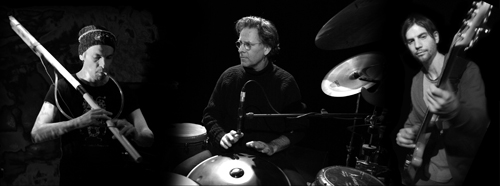
Vladiswar Nadishana - futujara, hybrid kaval, bansuri, dzuddahord, hulusi, water udu (Rusia)
Armin Metz - chitară bas (Germania)
Steve Shehan - percuţie, hang (SUA / Franţa)
Vladiswar Nadishana e un siberian multi-instrumentist, compozitor, producător de CD-uri şi proiecte muzicale. Muzica sa este bazată pe o sinteză creativă a diferitor tradiţii muzicale ale lumii şi pe tehnologii contemporane. Vladiswar cântă la peste o 100 instrumente muzicale: sitar, mandolină, chanzy, bouzouki, jew's harpă, kou xiang, khomus, morsing, kou xiang, khomus, morsing; percuţie etnică (darabuka, djembe, kalangu, udu, cajon, berimbao); instrumente de suflat (bansuri, quena, flaute overtonale, kalyuka, zhaleyka, gayda, hu-lu-si, duduk, bawu, tsaaj nplaim) şi crează instrumente experimentale.
A elaborat o tehnică unică de a cânta la fiecare instrument. Lucrează în direcţii precum ethnic fusion, ethno jazz sau world fusion, abordând posibilităţi digitale avansate de audio editare numindu-le “microchirurgie a sunetului”.
Din anul 2005 Nadishana locuieşte la Berlin, unde cântă în mai multe proiecte: “4th Race trio”, Duo cu Steve Shehan, duo Nadishana/Raphael De Cock, Nadishana - Somer Duo; mai desfăşoară şi o activitate de solo programe, prezentând instrumente rare, etnice din 20 ţări ale lumii şi colaborează ca studio muzician cu “Mehi” trio (Marea Britanie), DJ Genetic Drugs (Germania), cu Paul Lawler compozitor de muzică pentru filme (Marea Britanie), cu Siobhan Donaghy pop / Alternativ / Gothic grup (Marea Britanie), compozitor şi producător James Sanger (Franţa), cu WolfgangStindl în proiect “Ikarus” (Austria), cu producţia de Earritation nu-Jazz / psihedelică / ambient proiecte, cu Kit Walker - keyboardist şi compozitor (SUA) şi cântăreţi ca Yulia Dashevskaya, Tatjana Gordeeva, Vadim Redkin, Julia Japparova din Rusia.
Vladiswar Nadishana a colaborat cu Celtic nord-vest trio şi septet “Norland Vant”, cu scoţian - norvegian grup “Kelpe”, cu cântăreaţa din Tuva Ayas Holazhyk, cu muzicianul şi producătorul Marion Kokott (Germania)
Armin Metz, un basist extraordinar, din fragedă copilărie a fost atras de muzică - ascultând la radio muzica anilor ’70 ei a cântat Funk Soul şi muzică Pop la instrumente făcute de el.
În urma experienţelor autodidactice a început, la vârsta de nouă ani, să studieze pian clasic.
Inspirat de muzica electronică de filme, Armin până-n anii ‘80 era fascinat de sintetizatoare. La vârsta de 15 ani, descoperind chitara bas, urmase o pasiune pentru grooves şi tehnici ce permit simultan o gamă largă de sunete-linie bas, coarda melodiei şi percuţie. Armin a studiat chitara bas la Universitatea de Muzica HfM din Berlin. Explorările sale ca basist şi compozitor l-a condus pe Armin prin lumea largă a muzicii, în special a muzicii clasice indiene, electronice şi pop. Metz a lucrat ca basist şi producător cu Talvin Singh, Ahimsa, Tim Deluxe, Anandan Sivamani, Boobinga, Shiva Chandra, Felix Sabal-Lecco, Tunji Beier, Hossam Shaker, Anuradha S Krishnamurthi, Christina Lux şi Sonja Kandels... Ca producător şi multi-instrumentist a lucrat pentru studio proiecte, ca Siggi Stern's album “Siam Bruder”. Împreună cu didgeridoo muzicant Marc Miethe a format în 1997, Didge `n` bass duo “Boobinga”. În 1999 a co-fondat trupa fusion Ahimsa (India / Germania), cu care a înregistrat două albume şi concertează prin Europa. Uneori, cântă solo concerte de performanţă la chitara bas.
Steve Shehan născut în Statele Unite, într-o familie unde tatăl - Indian-Cherokee şi mama - americană de origine irlandeză, pentru care muzica este un mod de comunicare între popoare, indiferent de limba lor, de cultură şi religie.
El zboară cu avioane mici peste continente, petrece luni in deşert cu Touaregs, colecţionează instrumente de percuţie de la meşteri din cele patru colţuri ale globului (detine mai mult de 500).
Creeaza muzica, care ar putea fi descrisă ca muzică de ambianţă de jazz cu intonaţii etnice şi imagini sonore înregistrate în Bali, Turcia, Kenya, Brazilia, Afganistan ... .
Steve Shehan este un excelent compozitor şi muzician poli-instrumentist de clasă mondială, a cărui percuţie este solicitată de către cei mai mari artişti de pe scena rock'n'roll-ului, world muzicii, muzicii anglo-saxone şi cântecului francez.
Faimos pentru stilul său inovator şi profesionalismul său eroic, înregistrările lui au fost prezentate în cele mai bune şi numeroase publicaţii din întreaga lume.
Fiecare realizare a lui a fost înalt apreciată de către public şi critici.
Steve Shehan a compus şi a produs 15 albume personale în aproximativ douăzeci de ani, coloane sonore pentru filmele “Bye Bye” (de Karim Dridi), “Le maître des elephants” (de Patrick Grandperret), coloane sonore pentru filmele “Kirikou” (de Michel Ocelot) şi “L'amant” (film realizat de Jean-Jacques Annaud); muzica pentru baletele: “Art Jazz”, “Thierry paracliser” ..; prezentări de modă: (Christian Dior, Claude Montana, Antonina Miro ...) şi a realizat numeroase multimedia evenimente.
Steve a participat la crearea numeroaselor albume, a colaborat în studio şi pe scena cu artişti celebri ca Bob Dylan, Paul Simon, Paul McCartney, Peter Gabriel, Carla Bruni, Lokua Kanza, Liane Foly, the Gipsy King, Cheb Mami, Salif Keita, Youssou N'dour, Vangelis, L'Orchestre National de Lille, Louis Chedid, Didier Lockwood, Jon Hassell, Nitin Sawhney, John Mc Laughlin ... .
El este unul din membri al World Jazz Trio “Hadouk” care a câştigat în 2007 la “Victoires du Jazz” - Premiul “Cel mai bun artist al anului”
Vladiswar Nadishana is a Siberian multi-instrumentalist, composer, recording producer.
His music is based on creative synthesis of different musical traditions of the world on the basis of contemporary technologies. Vladiswar plays on more than 100 instruments of the world such us: sitar, mandola, chanzy, bouzouki, jew's harp, kou xiang, khomus, morsing, ethnic percussion (darabuka, djembe, kalangu, udu, cajon, frame drums, berimbao); winds (bansuri, quena, overtone flutes, kalyuka, zhaleyka, gayda, hu-lu-si, duduk, bawu, tsaaj nplaim). Besides he has created some experimental musical instruments.
He elaborates the unique playing technique on each of his instruments and his own approach to advanced digital audio editing called sound microsurgery working in direction of ethnic fusion, ethno jazz or world fusion.
Since 2005 Nadishana lives in Berlin where he plays at several projects. The most important of them are: “4th Race” trio, Duo with Steve Shehan, Duo Nadishana/ Raphael De Cock , Duo Nadishana/Somer or performing the solo program presenting some 20 rare ethnic instruments of the world.
He collaborate with the Celtic northwest trio and septet Norland Wind, with a Norwegian-Scottish World Music group “Kelpe”, with throat singer from Tuva Ayas Holazhyk and German musician and program`s producer Marion Kokott
His studio collaborations are with “Mehi” trio (UK), DJ Genetic Drugs (Germany), with Paul Lawler composer of music for films (UK), with Siobhan Donaghy the Pop / Alternative / Gothic group (UK), the songwriter and producer James Sanger (France), with Wolfgang Stindl in “Ikarus” project (Austria), with “Earritation” production of Nu-Jazz / Psychedelic / Ambient projects, with Kit Walker - keyboardist and composer (USA) and Russian singers Yulia Dashevskaya, Tatjana Gordeeva, Vadim Redkin, Julia Japparova
An extraordinary bass player, Armin Metz was attracted from his early childhood by music, listening to 70´s radio program and playing Funk Soul and Pop on self-made instruments.
After autodidactic experiences he started lessons in classical piano from the age of nine. Inspired by electronically film music, he was fascinated with synthesizers in the mid 80´s. Metz picked up the bass at the age of 15; followed a passion for earthy grooves and unique techniques that allow simultaneous bass line-chord-melody structures and percussive wide-range sounds. He studied bass at the University of Music HfM Berlin. His explorations as a bass player and composer led him through the wide field of world music, especially to classical Indian music, electronic and pop.
Metz has worked as a bass player and producer with Talvin Singh, Ahimsa, Tim Deluxe, Anandan Sivamani, Boobinga, Shiva Chandra, Felix Sabal-Lecco, Tunji Beier, Hossam Shaker, Anuradha S Krishnamurthi, Christina Lux and Sonja Kandels amongst others.
Studio projects such as Siggi Stern´s album “Siam Bruder” feature Metz as producer and multi-instrumentalist. Together with German didgeridoo player Marc Miethe, he formed in 1997 the didge`n`bass duo “Boobinga”, in 1999 he co-founded the world fusion band “Ahimsa” (India/Germany) which recorded two albums and toured through Europe several times. Sometimes he can be heard performing solo bass - guitar concerts.
Steve Shehan
An atypical route for this composer born in the United States, of a Cherokee father and an American mother of Irish descent, for whom music is a way of communication between the peoples of whatever is their language, their culture and religion
He flies small planes across continents, spends months in the desert with the Touaregs, collects the masters percussion instruments from the four corners of the globe (he owns of more than 500).
Creates the music which could be described as ambient music with ethnic & jazz overtones, and sound images recorded in Bali, Turkey, Kenya, Brazil, Afghanistan... .
Steve Shehan is a world class fantastical composer and musician poly-instrumentalist, whose percussions were required by the largest artists of the scene rock'n'roll, world, Anglo-Saxon and French song.
Famous for his innovative style, Steve’s professional exploits and recordings have been featured in numerous publications worldwide. Each of his releases have received public and critical acclaim
Steve Shehan composed and produced personally 15 albums in about twenty years, soundtracks for films “Bye Bye” (by Karim Dridi), “Le maître des elephants” (by Patrick Grandperret) and the soundtrack for films “Kirikou” (by Michel Ocelot) and “L’amant” (film realized by Jean-Jacques Annaud);
ballets “Jazz Art”, “Thierry Verger”..; and fashions shows (Christian Dior, Claude Montana, Antonina Miro…) and has realized a several multi–media events ….
He took part in many albums and collaborated in studio and on stage with artists as famous as Bob Dylan, Paul Simon, Paul McCartney, Peter Gabriel, Carla Bruni, Lokua Kanza, Liane Foly, the Gipsy King, Cheb Mami, Salif Keita, Youssou N’dour, Vangelis, l’Orchestre National de Lille, Louis Chedid, Didier Lockwood, Jon Hassell, Nitin Sawhney, John Mc Laughlin... .
He is one of three members of the World-Jazz Trio “Hadouk”, which won in 2007 at the “Victoires du Jazz” the French Music Award “Best Artist of the Year”.
|
RENATO BORGHETI QUARTET (Brazilia) |
| |
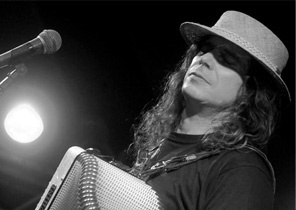
Renato Borghetti - acordeon (gaita ponto)
Daniel de Sa Leite - chitară
Vitor Peixoto - pian
Pedro Figueiredo - saxofon, flaut
Renato Borghetti - carismatic gaucho, acordeonist virtuoz – e un super star printre noii folk muzicieni din Rio Grande do Sul din sudul Braziliei.
Borghetti e un instrumentist unic din regiunea sa, care a ignorat mainstream-ul industriei muzicale din Brazilia.
Totuşi, el a cîştigat aprecierea naţională şi internaţională a pairilor săi şi success popular în acelaşi timp, interpretând muzică instrumentală puternic legată de rădăcinile sale şi condimentate cu elemente ale jazz-ului şi muzicii clasice.
În ciuda tuturor experimentelor, Renato Borghetti rămâne 100% gaucho…
“Borghetti a revăzut, a adaptat şi a modernizat multe dintre cântecele băştinaşe din Rio Grande do Sul; el nu se abate de la formele mai tipice, de la spectrul larg al muzicii braziliene şi mondiale – samba, jazz, tango…
Fiecare dintre aceste forme el le adaptează la stilului său unic de a cânta la acordeon. Modul lui de a cânta nu este lipsit de loialitate faţă de folclorul autentic ci e aventuros şi deschis pentru idei noi” (William Hogeland).
Borghetti a participat la numeroase Festivaluri de jazz şi folk din Europa şi America, alături de formaţiile sale excepţionale. S-a manifestat şi ca solist în fruntea mai multor orchestre ale sale, simfonice, sau camerale precum Orchestra Simfonică din Porto Alegre. A împărţit scena cu Stephane Grapelli, Ron Carter şi Hermeto Pascoal. Este primul muzician brazilian care a atins un record de aur, exclusiv cu muzică instrumentală).
Discografia lui cuprinde 23 albume editate în Brazilia şi Europa.
Lista de premii conţine:
În 1980 – Primele lui premii ca “Cel mai bun instrumentist” la festivaluri regionale din Rio Grande do Sul
În 1984 - prima înregistrare s-au vândut peste 200.000 de exemplare şi premiată ca primul Brazilian CD de Aur.
În 1991 - Premiul Sao Paulo acordat de Asociaţia Criticilor de Artă: “Cel mai bun CD al anului”.
În 1999 - Câştigător al “Acoriano 1999 Award”.
În 2005 - CD “Gauchos” nominalizat pentru “Preis der deutschen Schallplattenkritik” şi noua versiune braziliană “Gaitapontocom”, nominalizată pentru “Grammy Latino”.
În 2008 - CD “Fandango!” Primeşte “Premio Acorianos” şi a câştigat un Grammy Latino 2008, categoria “Cel mai bun Album al anului”
Presa
“Borghetti combină muzica de dans, folklorică şi improvizaţie. Limbajul lui muzical se bazează pe o tehnică de virtuozitate şi un mix de sunete şi pasiune, ce face concertele lui atractive pentru public.
Un ideal ansamblu: patru muzicieni excelenţi, care ştiu să integreze perfect sunetele lor de diferite culori cu calităţile unor personalităţi remarcabile.” Jazzconvention, I, July 2007
“Borghetti a făcut pentru muzica Gaucho, ceea ce Piazzolla a făcut pentru Tango”.
Jazzthetik pe “Gauchos” (Germania), aprilie 2005
“Tremurând toate rădăcinile, asaltând toate valurile. Simpatic şi incredibil. Incredibil de simpatic.”
jazzzeit.at, Vienna (Austria), 2003
The charismatic gaucho, accordion virtuoso Renato Borghetti is the superstar among the new folk musicians from Rio Grande do Sul in Southern Brazil.
Borghetti is a unique case of an instrumentalist from a region almost disregarded by the mainstream musical industry in Brazil. Nevertheless, he gained national and international recognition from his peers and popular success at the same time, performing instrumental music strongly connected to his roots and spiced with jazz and classical music elements. And in spite of all experiments he remains 100% gaucho… .
“Borghetti has revised, adapted, and modernized many of the native tunes of Rio Grande do Sul; he does not shy away from more typical forms, from the wide spectrum of Brazilian and global pop – samba, jazz, tango, and beyond.
Each of those forms he adapts to his unique style of accordion playing.
His playing is uncompromising in its loyalty to a folkloric past, adventurous in its openness to new ideas.” William Hogeland
He has played at jazz and folk Festivals, has also been performing as a soloist ahead of several symphonic and chamber orchestras like the Orquestra Sinfonica de Porto Alegre, has shared the stage with Stephane Grapelli, Ron Carter and Hermeto Pascoal and is the first Brazilian musician to achieve a golden record with exclusively instrumental music.
His discography consists of 23 albums edited in Brazil and in Europe.
“Gauchos”, his first European CD, was released by the Vienna label Quinton Records in 2005, nominated for the “Preis der Deutschen Schallplattenkritik” and presented with a lot of success in numerous concerts and festivals all over Europe.
CD “Gaitapontocom” won a Grammy Latino in 2005.
His last work “FANDANGO!” was awarded the “Premio Açorianos” in Porto Alegre as best CD&DVD of the year and won a Grammy Latino 2008 in the category “Best Traditional Music Album”
Press
“Mozart would have enjoyed it a lot!”
Wiener Zeitung, Vienna (A), June 2005
“Borghetti does to Gaucho music what Piazzolla did to Tango.”
Jazzthetik on “Gauchos” (D), April 2005
“Shaking all roots, storming all waves. Sympathetic and incredible. Incredibly sympathetic.”
jazzzeit.at, Vienna (A), 2003
| Jurnalist - Ludmila Osipova |
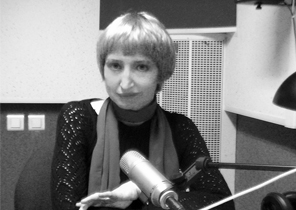
Comentator al Companiei "Radio Rusia" (www.radiorus.ru).
Membru al Uniunii Compozitorilor din Rusia.
Vice-preşedinte al Asociaţiei Naţionale duetelor de pian.
Critic muzical permanent la “Concurs Internaţional P.I. Ceaikovski”, “Concurs de Orgă - Mikael Tariverdiev” (Kaliningrad).
Laureat al concursurilor revistelor muzicale “Muzica” şi “Academia Muzicală”.
Grant-titular al Bursei de Valori de Stat, instituite de prim-ministrul Federaţiei Ruse (1996-1999).
Maestrul Emerit al culturii din Federaţia Rusă.
Membrul juriului al concursurilor muzicale şi festivalurilor din Rusia, Elveţia, Bulgaria, Germania, Spania, Polonia, Egipt, Irlanda, Finlanda, Estonia, Letonia, Lituania, Serbia, Uzbekistan, Armenia, Turkmenistan
În 1998, a organizat primul concert formaţiei "Trigon" în Rusia.
Commentator of the “Radio Russia” (www.radiorus.ru).
Member of the Union of composers of Russia.
Vice-president of National Association of piano duets.
Permanent musical critic at the International Tchaikovsky Competition, of the Mikael Tariverdiev organ competition (Kaliningrad).
Laureate of concurs of the music magazines “Soviet Music” and “Academy of Music”.
Grant-holder of the state fellowship of the Prime minister of the Russian Federation (1996-1999).
Honored Maestro of Culture of the Russian Federation.
Jury member and Invited critics of musical Competition and Festivals in Russia, Switzerland, Bulgaria, Germany, Spain, Poland, Egypt, Ireland, Finland, Estonia, Latvia, Lithuania, Serbia, Uzbekistan, Armenia, Turkmenistan. In 1998, organized the first concert of “Trigon” group in Russia.
Proiect realizat cu susţinerea:

Colegiul Muzical "Anton Rubinstein"
ora 16.00
25 Septembrie - DUENDE Y AIRE (Spania)
28 Septembrie - VLADISWAR NADISHANA (Rusia)
|

